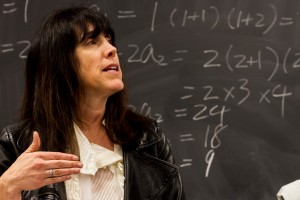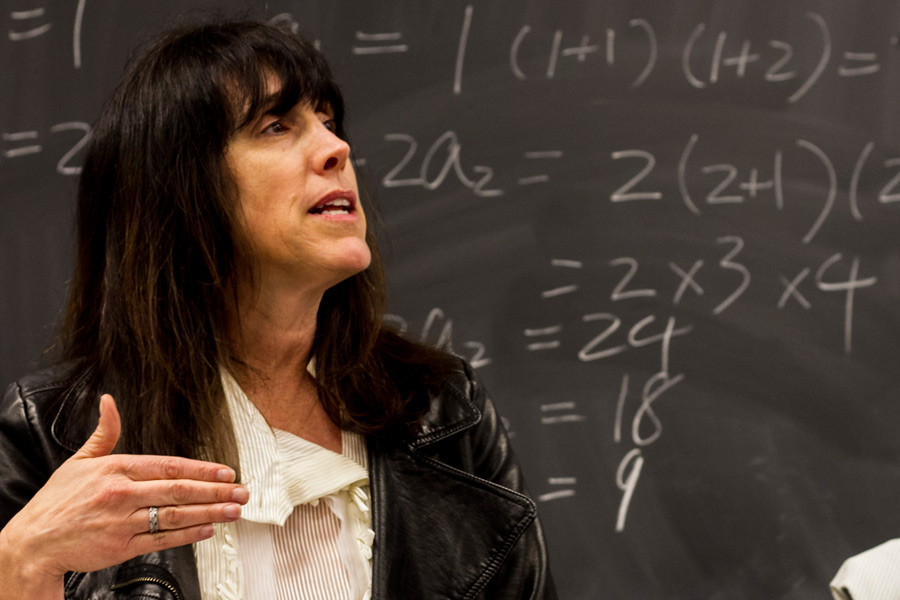Lecture warns students about dangers of texting
On Tuesday evening, Cambria Gordon, co-founder of Partnership to End Distracted Driving, spoke to graduate students in the Annenberg School for Communication and Journalism. Adjunct professor Gary Wexler invited Gordon to his class on nonprofit advocacy because many students expressed concern regarding the issue of texting while driving.

Eyes on the road · Cambria Gordon speaks to students in the Annenberg School Monday night about the dangers of distracted driving. – Liliana Scarlet Sedano | Daily Trojan
“During the first week of class, students had to write about a cause that they were interested in, and many of them wrote about this topic,” Wexler said.
Gordon’s personal story inspired her to educate others about the dangers of distracted driving. On July 20, 2011, she hit an elderly man in the crosswalk while retrieving her phone from the floor of her car. The man passed away soon after the incident, and Gordon struggled to cope with the emotional trauma of what she had done.
Gordon was charged with misdemeanor and vehicular manslaughter without gross negligence.
“Because I had the phone in my hand, it was a crime,” Gordon said. “And for the first time, I heard the words distracted driving, and I was a criminal.”
Gordon embarked upon an arduous road to forgiveness, filled with self-incrimination. She lived in fear and anxiety, managing her grief by distancing herself from reality.
“I could not believe that I had taken another person’s life,” Gordon said.
Gordon received 360 hours of court-ordered community service and 36 months of informal probation, which inspired her to move forward with a nonprofit.
“I had this epiphany that I’m just like everybody else in those orange vests and everyone is like me,” Gordon said. “I’m the mom of three who went to the Emmy Awards, but I’m also the homeless person who washes their hair in a sink at the beach. We all make mistakes, and I’m not perfect and I don’t have a perfect life. I came away with the idea that we are all imperfect.”
Gordon approached AT&T with her idea to create an educational documentary about distracted driving.
“We decided that we would work together and that I would be their Hollywood ambassador,” Gordon said. “I would go and have meetings with TV show runners and writers’ rooms and try to get the issue into scripted television.”
She concluded by encouraging students to pursue their ideas and use their life experiences to inspire positive change.
Jeri Lynch, a second featured speaker, followed Gordon’s speech by describing her own story. She founded the Conor Lynch Foundation in honor of her son Conor, who died from a distracted driving accident in 2010. Lynch’s organization informs high school students about the issue through different forms of media, such as short films and a mobile app.
Additionally, Lynch organized a run in celebration of Conor’s passion for track and field. The run attracted more than 1,000 participants and raised about $80,000.
“Spiritually, I decided I had to do something,” Lynch said.
In conclusion, Wexler emphasized that nonprofits must discover creative ways to reach the soul of society.
“We are in a world that has multiple ways of reaching people and getting messages across … but the most important thing is that you need to have a strong idea,” Wexler said.

